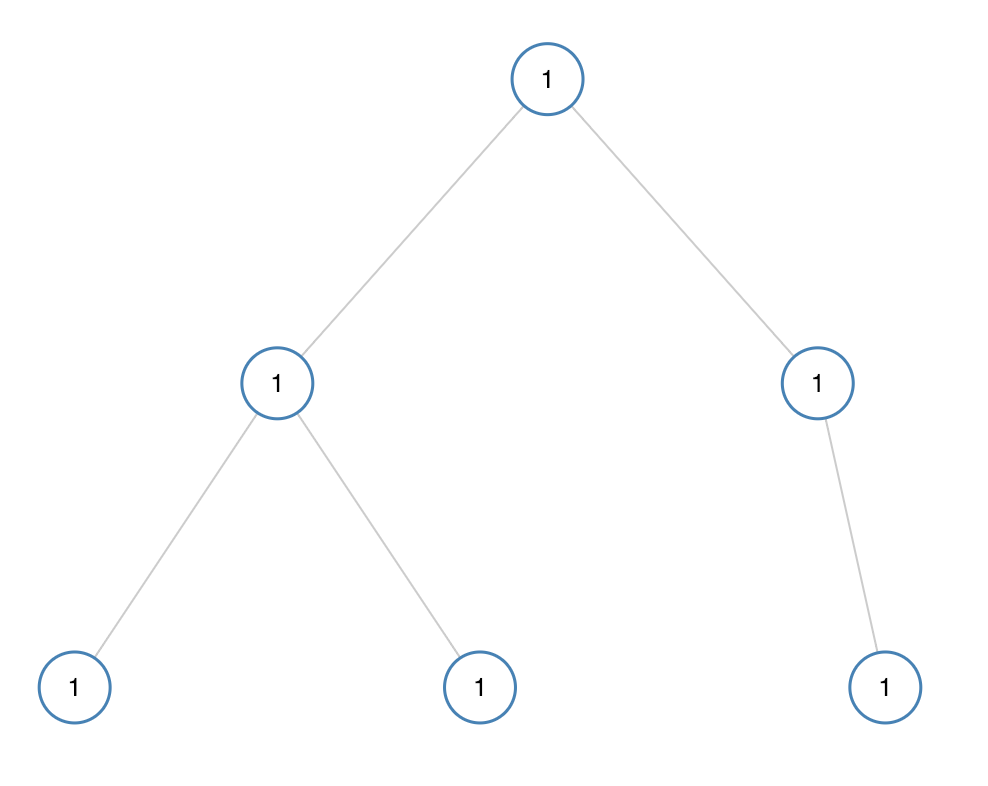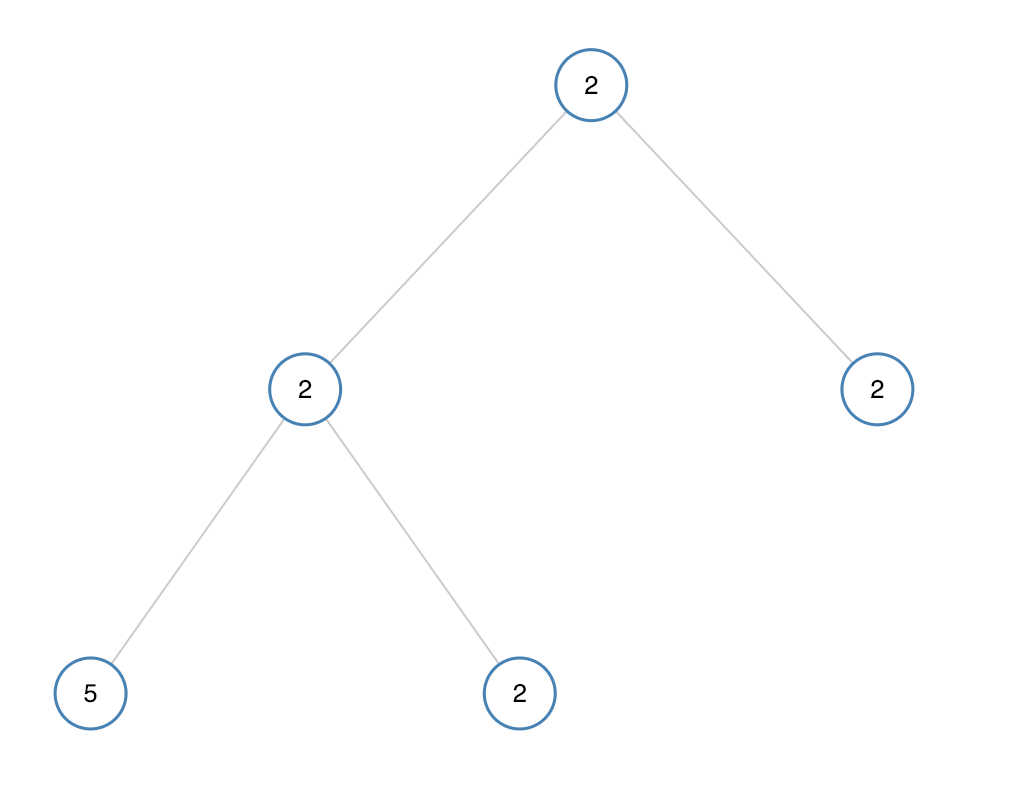如果二叉树每个节点都具有相同的值,那么该二叉树就是单值二叉树。
只有给定的树是单值二叉树时,才返回 true;否则返回 false。
示例 1:
输入:[1,1,1,1,1,null,1] 输出:true
示例 2:
输入:[2,2,2,5,2] 输出:false
提示:
- 给定树的节点数范围是
[1, 100]。 - 每个节点的值都是整数,范围为
[0, 99]。
# Definition for a binary tree node.
# class TreeNode:
# def __init__(self, val=0, left=None, right=None):
# self.val = val
# self.left = left
# self.right = right
class Solution:
def isUnivalTree(self, root: TreeNode) -> bool:
def dfs(root):
if root is None:
return True
if root.val != self.val:
return False
return dfs(root.left) and dfs(root.right)
self.val = root.val
return dfs(root)/**
* Definition for a binary tree node.
* public class TreeNode {
* int val;
* TreeNode left;
* TreeNode right;
* TreeNode() {}
* TreeNode(int val) { this.val = val; }
* TreeNode(int val, TreeNode left, TreeNode right) {
* this.val = val;
* this.left = left;
* this.right = right;
* }
* }
*/
class Solution {
private int val;
public boolean isUnivalTree(TreeNode root) {
val = root.val;
return dfs(root);
}
private boolean dfs(TreeNode root) {
if (root == null) {
return true;
}
if (root.val != val) {
return false;
}
return dfs(root.left) && dfs(root.right);
}
}/**
* Definition for a binary tree node.
* struct TreeNode {
* int val;
* TreeNode *left;
* TreeNode *right;
* TreeNode() : val(0), left(nullptr), right(nullptr) {}
* TreeNode(int x) : val(x), left(nullptr), right(nullptr) {}
* TreeNode(int x, TreeNode *left, TreeNode *right) : val(x), left(left), right(right) {}
* };
*/
class Solution {
public:
int val;
bool isUnivalTree(TreeNode* root) {
val = root->val;
return dfs(root);
}
bool dfs(TreeNode* root) {
if (root == nullptr) return true;
if (root->val != val) return false;
return dfs(root->left) && dfs(root->right);
}
};/**
* Definition for a binary tree node.
* type TreeNode struct {
* Val int
* Left *TreeNode
* Right *TreeNode
* }
*/
func isUnivalTree(root *TreeNode) bool {
return dfs(root, root.Val)
}
func dfs(root *TreeNode, val int) bool {
if root == nil {
return true
}
if root.Val != val {
return false
}
return dfs(root.Left, val) && dfs(root.Right, val)
}

